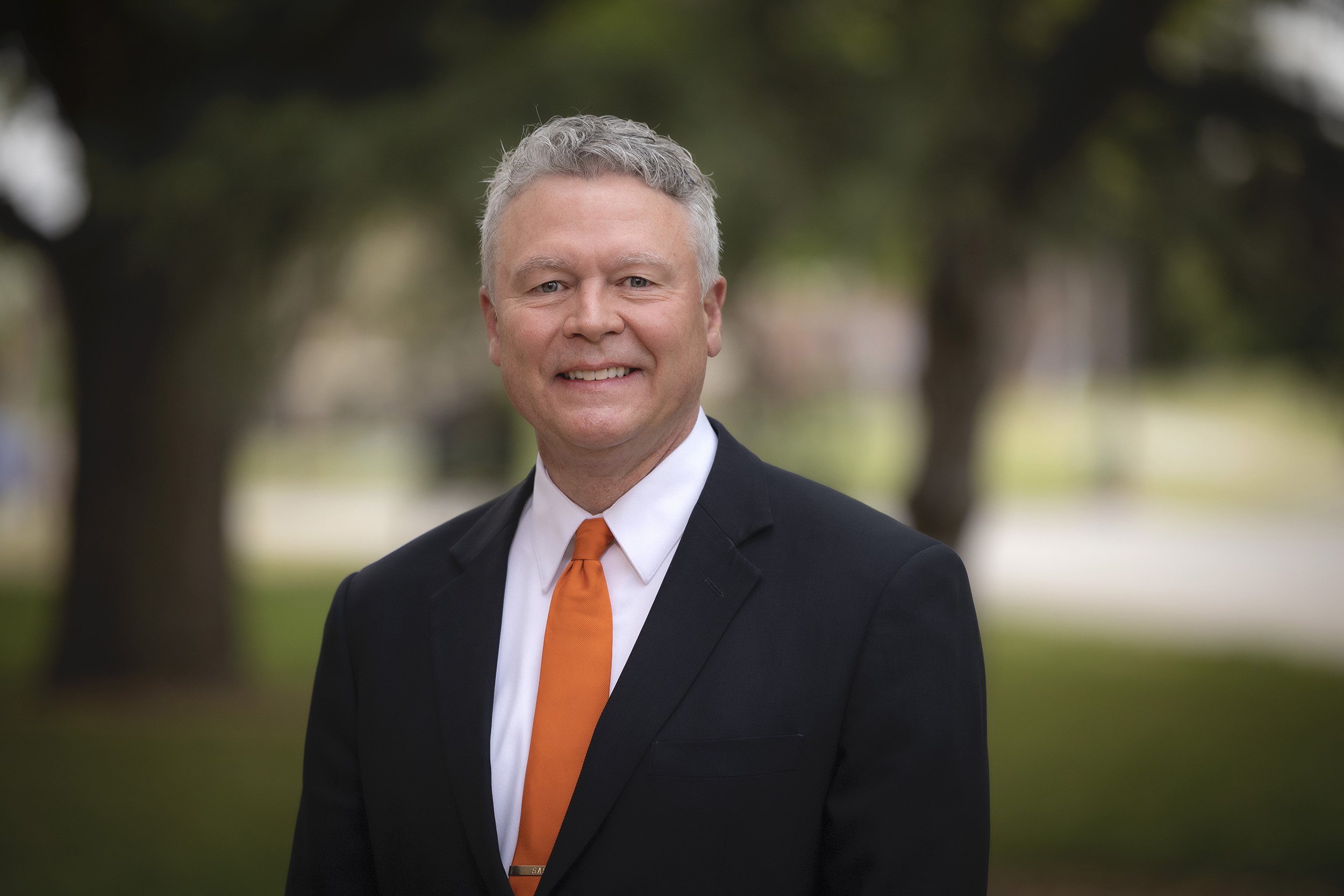
OSU will name new associate vice president of Ag Research
Wednesday, June 9, 2021
Media Contact: Alisa Boswell-Gore | Agricultural Communications Services | 405-744-7115 | alisa.gore@okstate.edu
Oklahoma State University will name Scott Senseman as the new associate vice president of the Oklahoma Agricultural Experiment Station in the Division of Agricultural Sciences and Natural Resources. Senseman’s appointment will be considered by the Oklahoma A&M Board of Regents at their June 18 regular meeting.
Senseman has a bachelor’s degree in agricultural business from Wilmington College in Ohio and a master’s degree and doctorate in agronomy from the University of Arkansas. He brings 25 years of experience in agricultural research and higher education to the position.
“With the recent addition of the new animal physiology research facility and the planned new laboratories in development as part of the New Frontiers project, Dr. Senseman’s vision will help guide our research programs into the future,” said Thomas G. Coon, vice president and dean of OSU Agriculture. “His experience gives him valuable insights in how to grow research productivity and impacts for production agriculture and ultimately, for families in Oklahoma and beyond.”
After growing up on a farm in Tipp City, Ohio, Senseman thought he would return to farming after college, but fate had other plans.
“My dad had a farm, and he farmed with my grandfather. We had a diversified farm at that time with corn, wheat, soybeans and livestock that included hogs and cattle,” he said. “With the attachment to how I grew up, I honestly thought I’d go back to the farm while I was in college, but I had an internship opportunity to work with a chemical company, and that really stirred an interest in me to go to graduate school. Furthering my education provided me with the skills to actually help producers manage pests in their agronomic crops.”
Senseman presently serves as the department head for the University of Tennessee’s Department of Plant Sciences where he has been for the past eight years, along with serving as the deputy assistant dean for the Herbert College of Agriculture. He also recently served as the interim dean of UT Extension. He spent 19 years as a professor and researcher in the Department of Soil and Crop Sciences at Texas A&M University and has specialized in pesticide fate and herbicide physiology for most of his career, publishing more than 100 research papers.
In his role as associate vice president, Senseman will lead long-range planning, implementation and reporting for OSU Ag Research programs in support of the university’s land-grant mission. He will succeed Keith Owens, who announced his plans for retirement earlier this year.
OSU Ag Research is the premier Oklahoma research and technology development agency in agriculture, natural resources and the life sciences, with a mission to conduct research to increase science-based knowledge and develop technology to improve the lives of Oklahomans.
OSU Ag Research productivity accounts for 33% of all research expenditures and 85% of royalties from intellectual property at OSU. In recent Times Higher Education rankings of how well universities are addressing the Sustainable Development Goals of the United Nations, OSU ranked second in the U.S. and 10th in the world in addressing elimination of hunger by the year 2030. OSU also ranks third in the U.S. in addressing the goal of ensuring clean water and sanitation.
“The faculty and leadership team have set the stage for success,” Senseman said. “Oklahoma has a really strong agricultural community. This is an opportunity to learn about the agricultural enterprises in the state of Oklahoma and a chance to learn about the problems they are facing and provide research-based solutions. Along with that, it’s a chance to serve in one of the best land-grant institutions.”
